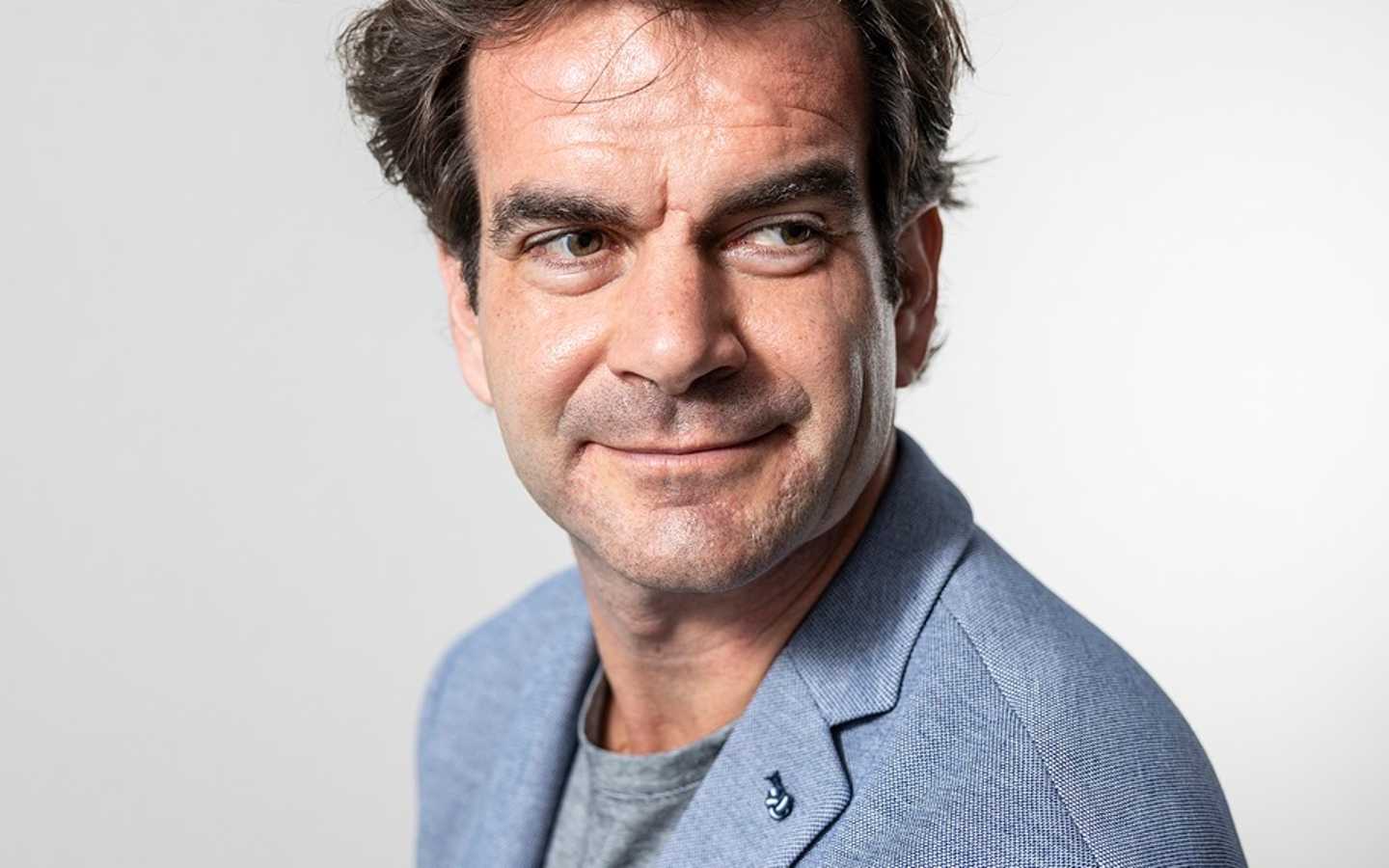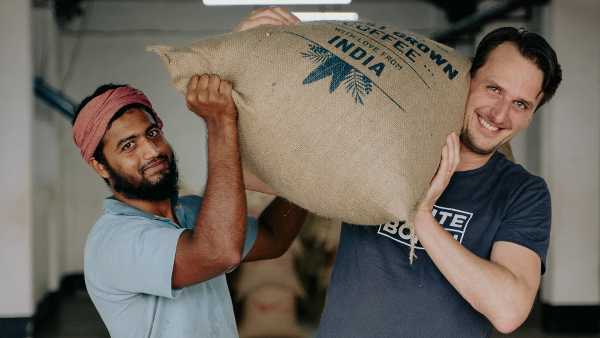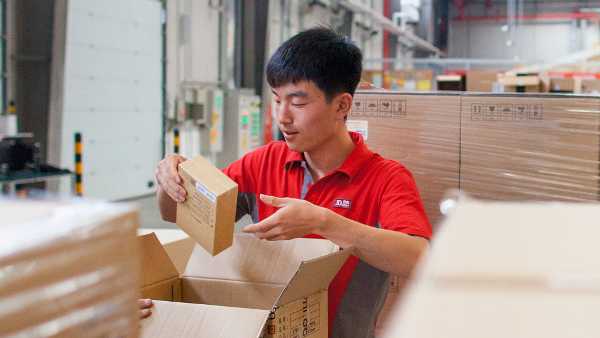Unrest and risk: the new normal in imports and exports
- Sandra Visser-Meijer
- Background
- 24 July 2025
- Edited 23 October 2025
- 5 min
- Managing and growing
- International
Import tariffs, wars, and new balances of power are all causing upheaval in the world. The consequences could affect your business. Futurist Hans Diels does not expect things to calm down any time soon. "This is the new normal," he says.
International tensions should be high on the agenda of all importers and exporters, according to Hans Diels. He deals with global issues as an expert on geopolitics at Belgian entrepreneurial platform Etion. "Smaller companies are also affected. Just think of fruit growers who suddenly lost their Russian sales market in 2014."
Is my business at risk?
Diels believes it is important for entrepreneurs to be aware of risks and prepare for events that may happen.
To do that, he recommends putting your business network on paper. "Map out where your raw materials, parts, and products come from. And via which routes they come to you. And on the other hand, which markets do you export to? And through which countries? Make this visible."
Next, says Diel, look at the risks. "Determine which countries are geopolitically sensitive. Consider what it means for you if a conflict breaks out there. If you only get important parts from China, what is your plan B?”
How do I keep the risks small?
Having a plan B is essential, according to Diels. "Just in case things go wrong." He has these practical tips to keep your risks small.
- Consider building up small stocks of indispensable parts or products.
- Seek out multiple suppliers, even if they are slightly more expensive. Diels advises to really spread the loactions if you can. So that if your first supplier is in China, your second is not in a country next to China. "Those countries are often still heavily dependent on China," he says.
- Have you found a second supplier? Diels recommends ordering small quantities straight away to build a relationship. Then you have something to fall back on when necessary. "In an emergency, this means you are just a little bit better prepared than your competitor. That can make all the difference."
Hans Diels
Geopolitical expert
Hans Diels studied political science, international relations and economics. He previously worked as a representative on the Trade Policy Committee of the European Council in Brussels and as an employee of the US embassy in Belgium.

Futurist
Author 'Markt onder vuur' (Market under fire)
Born in 1980
If you understand where the risks are, you can come up with scenarios. That gives you something to hold on to.
The days when you only had to look at price and quality are over, according to Diels. "We are in a phase where the major powers are rebalancing among themselves. This is not without tensions. The chances of your business being affected are higher than ever."
For entrepreneurs hoping that calm will return when Donald Trump is no longer US president, Diels has bad news: "That would be too simplistic. There are lasting power shifts going on. They will not disappear on their own."
How did this unrest arise?
So how did it get to this point? The difference from the 1990s and '00s is huge. Back then, the world felt calm and stable, agrees Diels. "In the West, it seemed like there would never be another war. There was one dominant power: America. Globalisation would bring prosperity, countries would democratise, middle classes would emerge. Political borders disappeared. Companies could buy from anywhere. All that mattered was where labour and raw materials were the cheapest."
Historically, international politics is usually a jungle.
From 2008, the situation changed. The financial crisis showed weaknesses in the Western system, Russia invaded Georgia, and China had been working in the background for years to gain more power. "We underestimated China for a long time,” says Diels. “We had an image in the West that everyone would join the new global economy. And that China would become like us. We thought it would accept a second-class role in the system we had built. That was naive and arrogant. Russia and China wanted power and influence for themselves."
What tensions are there now?
Diels calls the pre-2008 calm an exception. "Historically, international politics is usually a jungle, where power is the deciding factor," he says. That struggle is now back in full force. China is in conflict with Taiwan, Russia is waging war in Ukraine, and US President Trump is causing unrest with import tariffs. Diels sees that the following issues, among others, are also now affecting global trade:
1. China is becoming increasingly powerful
"The US remains the most powerful for now," according to Diels. "Economically and militarily, they are still above China. America is also ahead technologically, although the difference is narrowing. But China controls almost the entire rare earths chain. The country plays a huge role in the production of batteries, solar panels, and other cleantech applications."
2. Raw materials are scarce
"The world's population is growing and the demand for raw materials is increasing. At the same time, extracting raw materials is becoming more difficult because we have already used the supplies that were easy to extract."
3. The rise of medium-sized countries
"Countries like Türkiye, India, and Saudi Arabia are charting their own course. They are each powerful in their own region. Which side they would be on if war breaks out is less clear. Türkiye is a case in point. The country is an important NATO partner but also has good ties with Russia and China."
4. Authoritarian leaders
Trump and the leaders of Türkiye, Hungary, and India (Recep Erdoğan, Viktor Orban, and Narendra Modi) are examples of leaders Diels calls 'strongmen': "They present themselves as strong men. They draw a lot of power to themselves and do not allow themselves to be redirected easily. That leads more quickly to decisions that other countries do not agree with."
Economy as a target
Another important change Diels sees is the way in which a country’s economy is now often targeted by a hostile power. "During the Cold War, for example, there was still almost no trade between the West and the East. Now that is different and China and the US desperately need each other."
Becoming self-sufficient is an illusion. Countries are already too interconnected for that.
"When tensions arise, countries are more likely to use their markets, technology, or raw materials as a means of pressure," says Diels. "That results in trade wars and sanctions. China had already temporarily halted exports of rare earth metals to Japan. Now it is doing so to the US. That is one of the reasons the US gave in in its trade war with China."
An economic battle quickly has direct consequences for businesses and citizens. A solution is usually important for all parties. Diels cites chips produced in Taiwan as an example. "If there is a conflict there and production is disrupted, we have a very big problem worldwide. All our devices are full of chips. In hospitals, planes, and in your own smartphone."
Producing domestically is not a solution, according to Diels. "Becoming self-sufficient in everything is an illusion. Countries are already too interconnected for that." Chip production in Arizona for example. Diels says building the factory is already a problem, as is finding good staff. "Those chips will be 3 times as expensive as those from Taiwan. So, you know what will happen to the price of an iPhone."
Does the EU still have power?
As power shifts, unrest continues, and countries put pressure on each other, how does Diels see Europe's role in this? "Economically, Europe is a giant, but geopolitically a dwarf," he argues. "We have a big market; we have companies like ASML with unique technology. But we are bad at power politics."
As far as Diels is concerned, the EU should be able to act more forcefully. "In the case of sanctions against Russia, 1 country, in this case Hungary, can delay the whole process. That makes Europe vulnerable."
Putting on pressure
Diels does have ideas on how to improve. "We have to realise that we do have power. Europe has purchasing power, strategic sectors, and knowledge. But we must also be prepared to use that power as a means of pressure. And the EU must become stronger internally. Fewer fragmented rules, 1 real single market, and faster decisions. That would make Europe more attractive and resilient."
Tensions remain. The chances of your business being hit are higher than ever.
Opportunities in resilience
Diels sees that many entrepreneurs must still learn to deal with a world that remains unsettled. "They have to accept that uncertainty as part of their job," he says. According to Diels, resilience starts with awareness. "If you understand where the risks lie, you can think of scenarios: what do we do if conflict breaks out? How do we continue to deliver if a route breaks down? That gives guidance."
Above all, he says, entrepreneurs need to dare to do business. "Too much fear hinders action. But staying level-headed, recognising risks, and planning consciously make your company more robust and competitive. That is where your opportunities lie in uncertain times."


